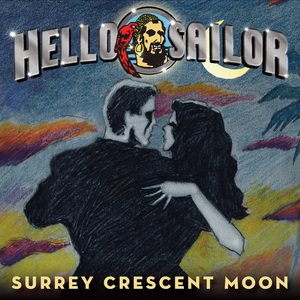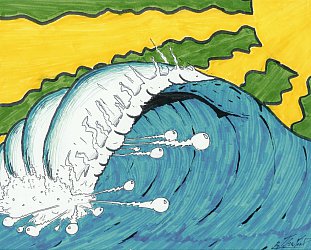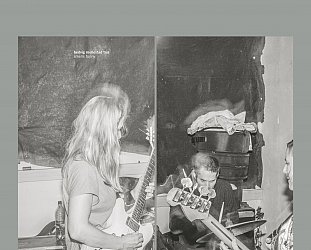Graham Reid | | 1 min read
Hello Sailor: Bungalow Ave

The mythology and facts surrounding Hello Sailor as the Famously Dissolute Ponsonby Rock Band of the Seventies probably does them a disservice these days.
They long since ceased to be that band and those people. And while they've been an occasional working band they haven't been represented by albums which means this new one – their first in 17 years and perhaps encouraged by last year's induction into the New Zealand Music Hall of Fame – will inevitably invite comparisons it cannot possibly win.
Can a song entitled Bric a Brac Shop compete with Gutter Black, or Black Patch and Pegleg go head-to-head with Blue Lady?
This isn't to excuse makeweight material like the awful faux-Caribbean De Dog here with the mystifying lines “just wanna crap on the neighbour's lawn, don't know nothin' about terrorist bombs, could have been a lesson for Osama Bin Laden”. Just to say if you come looking for classic Sailor you won't find it, but not everything on their original albums was a classic either.
There's perhaps a little too much Sailor-mythologising here – the two Dave McArtney-penned openers sound written from Graham Brazier's imagined diary of self-analysis – but this does contain songs which rate among their finer moments.
When this tries less hard it achieves more, notably on Brazier's lovely Under a Surrey Crescent Moon at the end. Part-poetic rumination and part-reflective murder ballad grounded in the Celtic tradition, it comes with a sympathetic undercurrent from Stuart Pearce's piano and Wurlitzer, and Harry Lyon's gently metallic guitar lines.
Equally McArtney's understated Big Black Bus – lyrics alluding to a fractured relationship and musical suggestions of mature, post-Ponsonby reggae – is immediately enticing.
If Brazier's Black Patch and Pegleg strains the pirate imagery and doesn't quite crystallise, he still delivers a good line in outsider/rebel stories (the bristling Holly and Billy will doubtless be a live favourite). And you can't deny Harry Lyon's suburban dream-gone-sour on the fierce power-pop Bungalow Ave, as astutely observed and lyrically compact as Ray Davies.
Or the menace in Brazier's hard-bitten Good Gun (“with her peroxide smile the moon-bitten nightclub child points a painted fingernail . . .”) which might have been more effective as a white-knuckle rocker than embellished by horns.
So this a different Sailor – as it was always going to be – and an uneven album.
But when this locks into place that old acidic-but-sentimental magic remains mercifully untarnished.
Hello Sailor's Dave McArtney answers our Famous Elsewhere Questionnaire here.







post a comment